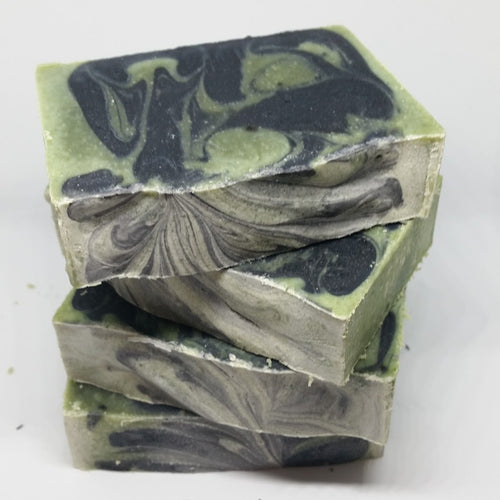Book review: Organic Farming with Worms
I've had a compost worm farm for several years now. Actually I currently have three worm farms. They are a little addictive! I didn't know anything about compost worms before I got them, but I fell in love with the concept of having somewhere to dispose all our organic (vegetative) waste that would also reliably produce compost and liquid fertiliser. The worms and I have been very happy with our relationship and I thought I knew everything I needed to know, but then a neighbour (who we respect as a very good hay farmer) recommended this book - Organic Farming with Worms, by David Murphy (and that's not even an affiliate link because its not on Amazon). Not just recommended it, he actually raved about it and showed us his new compost worm farm, and he said he'd bought copies of the book for all his friends! This really got my interest, so I ordered a copy for myself.
This book is for anyone who is serious about getting more out of their compost worms than just waste processing and a bit of compost. This is about maximising yield in garden and paddock by knowing how to manage both compost worms and earthworms to improve your soil (You might need to catch up on some soil info back here).
Wonderful worms
- Earthworms make top soil at a rate of 2 mm every year, considering how small they are, this is an impressive rate
- Earthworms increase the organic matter in soil, which in turn increases the cation exchange capacity - this means that minerals are not leached from the soil
- And organic matter improves water holding capacity
- Vermicast (worm poo) contains enzymes which solubilise minerals, making them available for plant growth, this will also neutralise soil pH (move towards pH 7)
- Vermicast contains sticky compounds that create stable aggregates (lumps) of soil, which improves soil texture
Worms in the garden
This book explains how to use compost worms in your garden and how to attract earthworms to take up residence. A couple of key points that I found interesting:
- You can use vermicompost (worm farm compost) as a compost activator because it contains beneficial microbes
- Seeds sprout better in vermicompost (I know, that's where all the tomato plants in my garden came from!), so you can use it in seed starting mixes
- Don't think of the compost as "fertiliser" with an NPK ratio, its actually inoculating your soil with good microbes
- You can attract earthworms to your garden by making a temporary worm farm in the soil.
Since I read this I've been trying to use more vermicompost in my garden. Previously I have tried to pick all the compost worms out of the vermicompost before I put it on the garden. Now when a bin is full, I just dig a trench, dump in the vermicompost including worms and cover over with some mulch. The compost worms will continue their work until all the compost is converted and then the earthworms will take over. This is easier than picking out the compost worms and should be better for the soil.
Worms in the paddock
This book has some really good data and ideas about how and why to encourage earthworms in farmed paddocks. The two main suggestions are:
- leave stubble in the ground after heading grain or cutting hay
- don't plough - use a no till seeder (but also don't spray herbicide)
The reasons for these suggestions are that stubble in the soil continues to provide food for earthworms and keep the soil cooler and retain moisture. Ploughing obviously is very detrimental to worms as it chops them up and turns over their burrows. I have seen our neighbour implement both of these methods and I'm looking forward to checking in with him after a few months to see if he's noticed an improvement. The data from studies showed that both these methods worked to increase earthworm populations with the resulting benefits as listed above.
The book notes that it can be difficult to maintain earthworm populations on dry land farms, as it can just get too dry for worms to survive. A couple of solutions are offered:
- Use a worm farm to generate vermicast and solution (worm wee) that can be used to spray onto the paddock, therefore conveying the advantages of the beneficial bacteria and enzymes present in the vermicast - only a very low dilution is needed, so a small worm farm can be used to cover several hundred acres
- Inoculate a small area with earthworms, maintain the moisture in this area and as the earthworm population increased, eventually the water-holding capacity will improve, you can then gradually expand the area
This chapter also included an interesting explanation of biodynamic farming methods. If you are familiar with burying cow horns filled with manure (preparation 500) you might like to know its probably just really conducive to worm activity.
I have been wanting to brew up some vermicast solution for a while now, and we have the spray rig, so we will be trying that. I think I will also try developing small earthworm friendly areas when we have the water supply set up (around water trough overflows would be a good spot).
Growing your own worms
If you're interested in commercial scale worm farming, there is an entire chapter on this topic, as well as domestic worm farming. The author was very critical of the stacking basket farms, however I have two of these that are doing well. I do want to build a larger worm farm and I'll consider the advice in this book when designing that system. A "flow-through" system is recommended, including plans and instructions.
Overall this was an incredibly informative book and everything that my enthusiastic neighbour promised. If you are interested in getting more from your worms, I highly recommend this book for gardeners and farmers alike.
Do you have a worm farm? How do you use the vermicast and solution?
Read more about my worm farms here:
| My first worm farm |
| How to set up a worm farm |
| How to use worm farm compost |
| How to look after a worm farm |
Worm farm kits are available from Biome, click on the banner below:






















Leave a comment